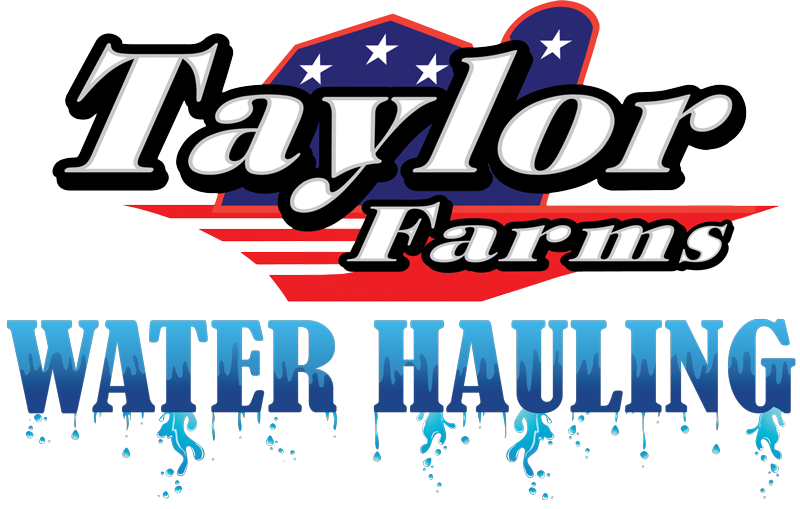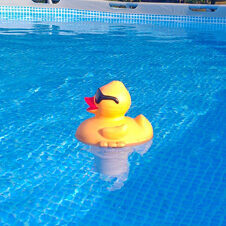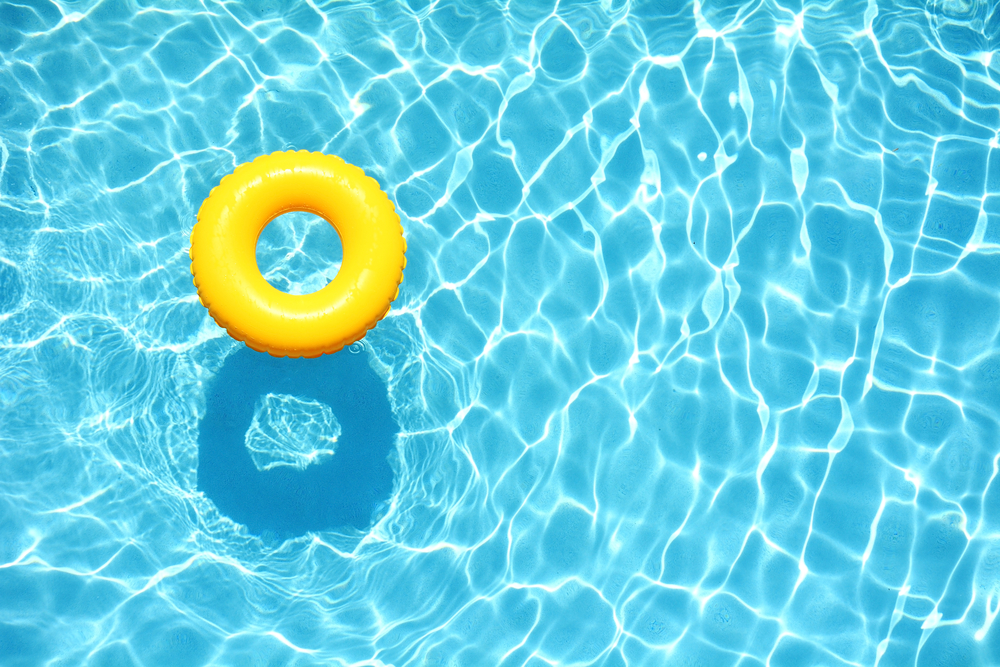If you have a swimming pool in your backyard you probably know that pool water evaporation can be a problem. This is something that happens year-round and typically means you’ll be topping-off your water level a few times a year.
Today, we’ll have a closer look at what evaporation is, when you should expect it to occur, and what you can do about it.
Pool Water Evaporation
As mentioned before, evaporation can happen year-round, but we typically see the majority of evaporation occur in the summer months.
This is because your pool is largely uncovered during the summer months and the sun exposure heats up the pool water and causes it to evaporate.
You can measure pool water loss by marking the water level just after the pool has been filled or topped off. The easiest way to do this is to immerse a bucket of water in your pool by placing it on a step, and marking the water level on both inside and outside of the bucket.
Alternatively, you can find an area to mark the water level directly on the side of the pool. You can use this water level mark to monitor your evaporation levels all summer long.
How Much Pool Water Evaporates per Day in Hot Weather?
In West Virginia, the hottest months of the year are June, July, August, and September.
You may find your water level dropping faster during these months. Evaporation doesn’t just depend on the temperature.
Factors such as the humidity levels and the wind also contribute to evaporation. You can expect your pool water to evaporate much faster on a dry and windy day than on a still, humid one.
How Much Pool Water Evaporates per Day in Cold Weather?
If you live in an area with winters too cold for swimming, you’ll typically close your pool for the winter.
Some people drain their pool, while others simply place a covering over the pool until its swim weather again.
If you do not drain your pool during the winter months you can generally expect your pool water to evaporate more slowly once the temperatures drop.
However, covering your pool will not eliminate evaporation altogether. You can use the same methods as above to calculate your water level loss during the winter months.
Should I Be Concerned about a Leak?
Every year, countless pool owners call their local plumbers because they believe that their pool sprung a leak.
While this can certainly happen, the problem is often evaporation, not a structural issue with the pool. To check whether the rate of water loss is normal, you can use the bucket method mentioned above.
If your pool does have a leak, you will see a significant loss of water in 24 hours and should contact your local pool repair shop.
Are There Ways to Stop Evaporation?
Evaporation is normal, and it happens to every body of water.
If you’re still planning the construction of your pool, you should think about how water loss can be minimized. You might locate your pool under a shady area, to reduce the amount of direct sun exposure.
You can also buy a protective pool cover, which you can place on your pool when it’s not in use to stop excess evaporation.
Call Taylor Farms Water Hauling
No matter what you do to reduce pool water evaporation, some water loss is inevitable.
To replace the loss of water contact your local water hauling company. You can schedule a one-off delivery either at the end of the current season or the beginning of the next season.
By scheduling a bulk water delivery from a water hauling company, you’re getting clean, chlorinated water so your pool is swim ready sooner rather than later. After adding water, it’s always a good idea to check the chemical levels to ensure the pool is safe for swimming.
Should You Drain Your Pool Water in the Winter?
One of the most frequently asked questions about in-ground and large above-ground pools is whether you should drain all the water every year.
In most cases, this isn’t necessary, and it will cost you more in the long run. If you leave the water in your pool, you’ll have to purchase a smaller quantity to get started, and the process of opening the pool in the spring or early summer is much easier.
You’ll also protect your pool’s structure from drying out and developing cracks. However, you should drain your water, clean the pool liner, and replace replace the water every 3-5 years.
Pool water evaporation is a normal process, and it happens most quickly during the hot summer months. To keep your pool in good condition, top-off the water level regularly and make sure the chemical balance is still correct.
If you’re searching for potable or chlorinated water for your swimming pool, large event, construction site, or emergency service your search is over!
Taylor Farm’s Water Hauling is the area’s leader in water delivery for West Virginia, Maryland, Virginia and limited areas of Pennsylvania. You may contact us online or call us at 304.229.1194. We deliver water for any size swimming pool or hot tub, ponds, and cisterns. We also provide potable water for events and emergency services.




